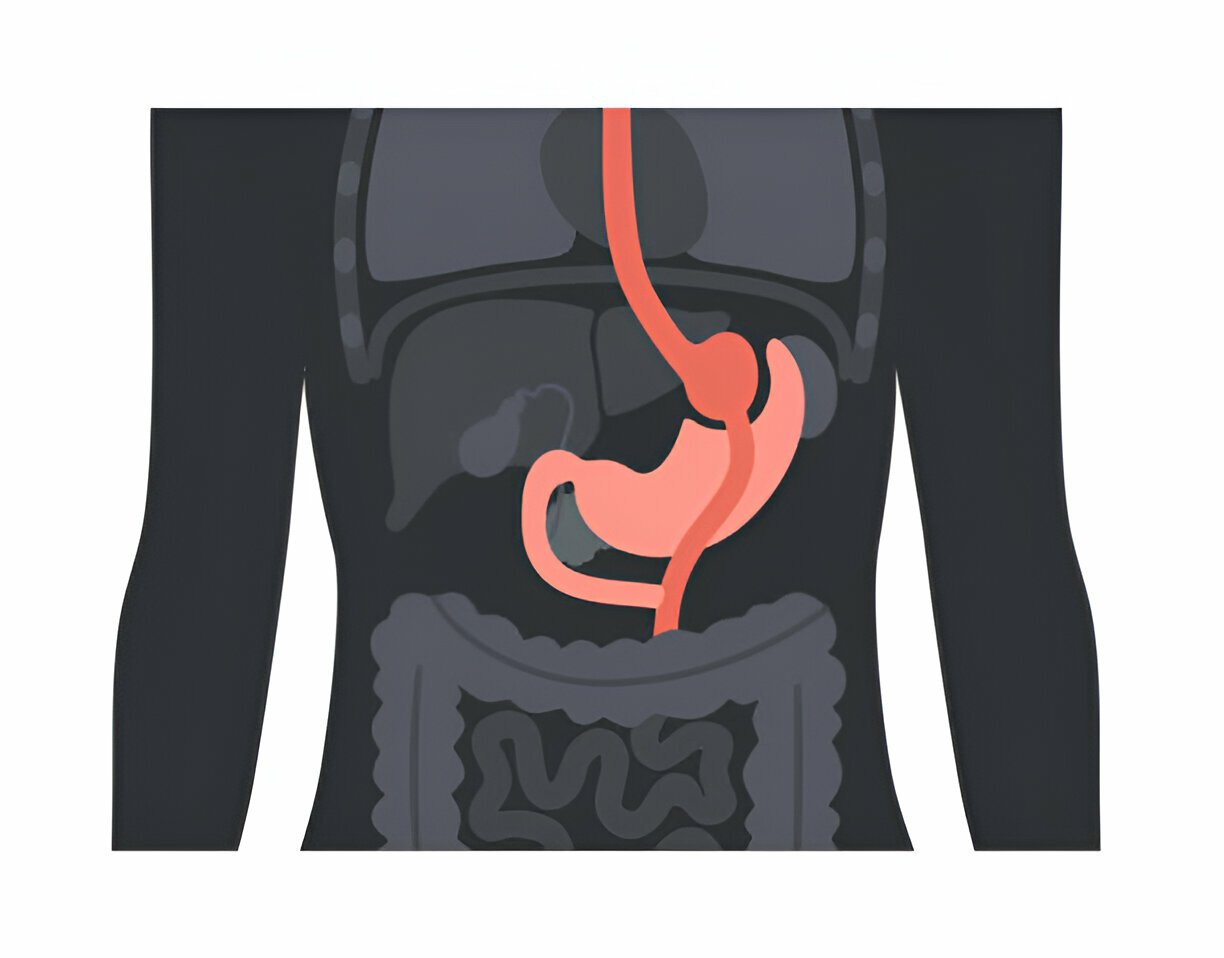Bariatric surgery doesn’t reduce obesity by itself. Bariatric operations do not remove any adipose tissue or body fat. Instead, the bariatric surgeon alters the digestive tract to reduce the amount of food and/or calories that patients can absorb. Gastric bypass procedures (eg. Roux-en-Y, Biliopancreatic Diversion, Duodenal Switch) achieve this by two methods. First, the stomach size is reduced from the size of a melon to the size of an egg, or smaller. Then the upper section of the small intestine is bypassed, so that food mixes with fewer digestive enzymes and has less opportunity to be metabolized and absorbed in the gut. This causes an immediate and drastic reduction in calories, and it is this calorie reduction that leads to weight loss. Gastric banding (eg. Lap Band®) and gastroplasty (eg. Vertical Banded Gastroplasty) procedures do not involve any form of bypass. These obesity surgeries simply restrict food intake by shrinking the stomach. As a result, patients tend to lose less weight than after gastric bypass.
Weight reduction among patients who undergo this type of gastric reduction procedure is determined by several factors, including: the patient’s age, patient’s weight and overall health condition including morbidities, the type of bariatric operation chosen, the patient’s capacity for exercise, whether the patient follows post-operative dietary guidelines, and what support they obtain from their bariatric surgeon, obesity clinic, family and friends. Bariatric surgery forces patients into making drastic but short term changes to their eating habits. Typically, this is sufficient to cause massive weight loss. In the long term however, the stomach pouch will stretch and patients can overeat in various ways, thus regaining some or all of their lost body fat.
How Is Successful Bariatric Surgery Defined?
Successful weight loss surgery is defined as losing 50 percent of pre-op excess body weight, and maintaining that weight loss for at least five years.
How Quickly Do Most Patients Lose Weight After Bariatric Surgery?
Bariatric patients commonly lose body fat very quickly. Here is a typical pattern of weight loss.
Immediate Weight Loss Results
Immediately after any gastric bypass and stomach banding procedure, patients must initially follow a liquid-only diet for about 2 weeks. This results in a drastic reduction in calories and rapid weight loss.
Short Term Weight Loss Results: 0-24 Months After Surgery
In addition, because their new smaller stomach pouch can accomodate only about 2-3 tablespoons of food, even when they add semi-solid and finally solid food to their daily diet, they can only absorb a very small number of calories. Because of this caloric restriction, weight reduction usually reaches a peak between 18 and 24 months after the bariatric operation. Patients may lose 30-50 percent of their excess weight in the first six months and up to 77 percent after 12 months after surgery.
Long Term Weight Loss Results: 2-5 Years After Surgery
As time passes and a significant amount of body fat has been lost, some stretching of the stomach pouch can occur and also patients may find their commitment to losing weight – or even maintaining the weight lost – waning. In general, the more time that elapses after bariatric surgery, the more important patient attitude is to successful weight reduction.
Which Type Of Bariatric Procedure Causes The Greatest Weight Loss?
In general, gastric bypass achieves better long term weight loss results than either banding or gastroplasty, for two reasons. (1) A bypass contains an additional malabsorptive element which reduces calorie intake even if more food is consumed. (2) Due to band slippage or stapling problems, operations which rely wholly on a restrictive element are less effective than bypass surgeries, especially if the patient consumes high-density, high-calorie liquid food (eg, milk shakes) which passes more easily through the gastric canal.
After gastric bypass, average weight loss at five years ranges from 48-74 percent. In a review of 600 patients after stomach bypass, with a 96 percent follow-up rate, average weight loss exceeded 50% after fourteen years. Some bariatric clinics report especially impressive weight loss results with distal gastric bypass – with mean excess weight loss of 89 percent (near normal weight) after five years – compared to a loss of about 75 percent with a medial gastric bypass, and a 50 percent loss of excess weight with an open proximal gastric bypass. With a proximal laparoscopic bypass weight reduction was roughly 70 percent of excess weight after 4 years. After vertical banded gastroplasty weight reduction averages 50-60 percent. In America, in a review conducted by the University of Minnesota, of 136 studies published 1990-2003, featuring 22,000 patients who had bariatric surgery, the mean loss of excess weight for the different bariatric operations was as follows: 61.2 percent (all patients), 47.5 percent (after gastric banding), 68.2 percent (after gastroplasty), 70.1 percent (after biliopancreatic diversion or duodenal switch). By comparison, in Australia, where the two main bariatric procedure are laparoscopic adjustable gastric banding (LAGB) and Roux-en-Y gastric bypass (RYGB), results show a substantial weight reduction after both procedures, with an initial greater weight reduction after RYGB but similar effectiveness for both bariatric procedures at 4, 5 and 6 years.
Does Bariatric Surgery Improve Health?
Yes. Gastric reduction surgeries offer tangible health benefits following substantial weight loss. For example, a 2000 study of 500 patients showed that 96 percent of certain obesity-related health conditions studied (back pain, sleep apnea, high blood pressure, diabetes and depression) were improved or resolved. Other studies show that bariatric surgery significantly improves health conditions such as: arthritis, breathing problems, carpal tunnel syndrome, deep vein thrombosis, diabetes (type 2), fatty liver disease, GERD, high cholesterol, hypertension, hypoventilation, insulin resistance syndrome, lower limb ischemia, low back pain, metabolic syndrome X, obstructive sleep apnea, stroke, urinary stress incontinence, and vein conditions.
Patient Compliance is Crucial to Weight Loss Success
All bariatric patients are given comprehensive guidelines for post-operative diet and exercise routines. In the case of bypass patients, these guidelines include advice about nutritional supplementation to reduce the risk of vitamin and mineral deficiencies caused by their malabsorptive operation. The success of each patient in losing weight and maintaining good health depends upon their compliance with these eating and fitness guidelines. In particular, if patients find their eating regime too arduous and start “cheating”, their chances of significant long-term weight loss are slim. Bariatric surgery is no easy answer to obesity. Patients need realistic expectations, strong motivation and a willingness to comply fully with post-operative rules on diet and exercise.
Pressure to Revert to Previous Eating Habits
Despite the opportunity which bariatric surgery offers for motivated patients, the same pressures to over-eat and take insufficient exercise – that applied before the bariatric operation – will exist in the post-operative period. So if you are seriously obese and are considering surgery to help reduce your weight, ask yourself whether you truly have the motivation to adapt your eating, exercise and general lifestyle habits over the long term.










